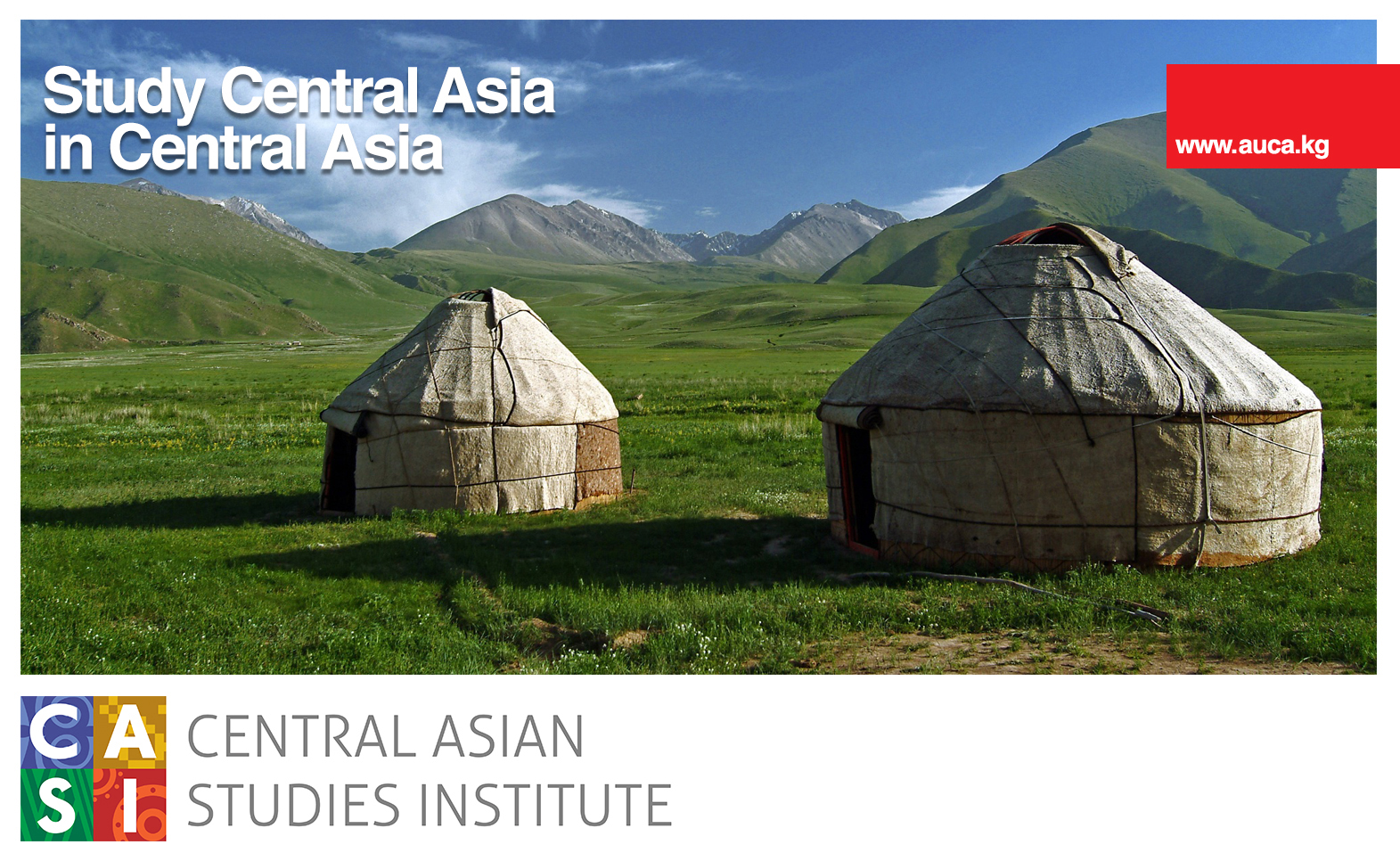The Master of Arts in Central Asian Studies (MACAS): Excellence and Innovation in the Study of Central Asia
May 28, 2015
The Master of Arts in Central Asian Studies (MACAS): Excellence and Innovation in the Study of Central Asia
MACAS was launched in 2013 as part of AUCA’s ongoing effort to foster educational excellence. The program, now in its second year, was meant to make a graduate education in the liberal arts tradition realistic and affordable for Central Asian scholars and to provide a setting far less burdensome, in terms of time and travel, for students from Kyrgyzstan, Tajikistan, Uzbekistan, and other Central Asian countries. It was also designed to allow foreign students the possibility of studying Central Asia in Central Asia – the program combines AUCA’s extensive expertise on the region with complete immersion in the culture of Bishkek, a city in which Soviet and Central Asian heritages collide with the newly introduced traditions of the West. No other area studies program affords its students the ability to so completely experience the complex legacies impacting post-Soviet Central Asia.
MACAS Program Goals
It is the goal of MACAS to provide students with a critical understanding of past and present social, political, economic and cultural processes in Central Asia as well as with an overview of the various academic disciplines that have shaped the production of knowledge on this complex, dynamic area. Graduates of the program will be prepared to enroll in social science PhD programs with a focus on Central Asia or to move seamlessly into careers in government, diplomacy, international organizations, development, journalism, or into any other field that requires solid area expertise and knowledge of a local language. MACAS also offers students a unique opportunity to acquire a degree that meets the standards of a liberal arts education without ever leaving Central Asia. Courses are conducted entirely in English and supervised by Western or Western-trained faculty. Those who successfully complete the program will have a solid grounding in academic writing, research, and critical thinking, skills that are highly valued in any context.
A Vibrant Intellectual Community
Entering students will become part of a vibrant intellectual community. MACAS is housed and overseen by AUCA’s Central Asian Studies Institute (CASI). Headed by Dr. Svetlana Jacquesson, an established specialist on the region, CASI has become a locus of Western scholarship – a forum for a growing body of talks and seminars concentrating on critical regional concerns. The Institute continues to attract visiting PhD students and scholars from some of the most prestigious universities in the United States and Europe; few centers can boast of such a talented group of affiliated researchers studying everything from the politics of ethnic handicrafts in Kyrgyzstan to the realities of “miracle truths” in post-Soviet proselytism.
Over the last several years CASI has organized a number of innovative conferences devoted to critical issues in the region, including a workshop last summer that explored the intersections of history and literature in the Central Asian past. It will continue this tradition in the Fall with an international conference that focuses on the social, political, and economic aspects of the Eurasian Economic Union, a compact that has sharply divided local opinion throughout the region and impacted discussions of national identity, sovereignty, and language. The conference, which will be held at the new campus of AUCA in Bishkek, will place CASI at the center of a critical and ongoing debate about the future of Central Asia.
Faculty Excellence and Program Innovation
Students in the program will have the opportunity to work with a distinguished and established faculty. MACAS is staffed by professors who focus on Central Asia and who are expert in both local and Western perceptions of the vital issues that have and continue to shape the region. The program also provides students the chance to take part in an innovative educational program. MACAS is expanding the possibilities of what an area studies program can be by offering courses that question our understanding of the Central Asian past and present. Dr. Svetlana Jacquesson’s introductory course on the region, for example, does not merely introduce students to Central Asia but also challenges them to critically analyze the fields of knowledge that have informed studies of the area. Her course encourages students to understand the ways in which specific fields create, restrict, and produce knowledge of Central Asia and trains them to identify the biases and limitations that shape these fields.
A Diverse Student Body
Now in the middle of its second year, MACAS has managed to retain all of its first year students – the majority will be defending their theses at the end of September 2015, and it attracted a varied body for the current academic year, including students from Afghanistan, Tajikistan, France, and the United States. MACAS is committed to maintaining this diversity of students in the future. In addition to recruiting talented Central Asian students, it hopes to increase the number of those from the US and Europe in the program by extending the options through which they can enroll. On request, and with the prior approval of their home universities, for example, foreign students can now be admitted to the program for a single semester; there is also the possibility of combining a single semester of study with summer field work or an internship. Additionally, foreign students may attend the program with the sole purpose of supplementing their coursework with a semester abroad in Central Asia. MACAS is also prepared to design tailored courses for NGO staff, aid workers, and Embassy personnel in the region, providing broad, introductory surveys or focusing more narrowly on specific economic, political, or social developments; qualified individuals are also welcome to apply to MACAS’s existing courses.
Those Interested in the Program
Those interested in applying to MACAS or requiring more in-depth information about the program can consult the MACAS website at https://www.auca.kg/en/master_of_arts_in_central_asian_studies/. Requests for additional information can be addressed to the CASI Research Coordinator, Christopher Baker, at chrisbak@umail.iu.edu.

